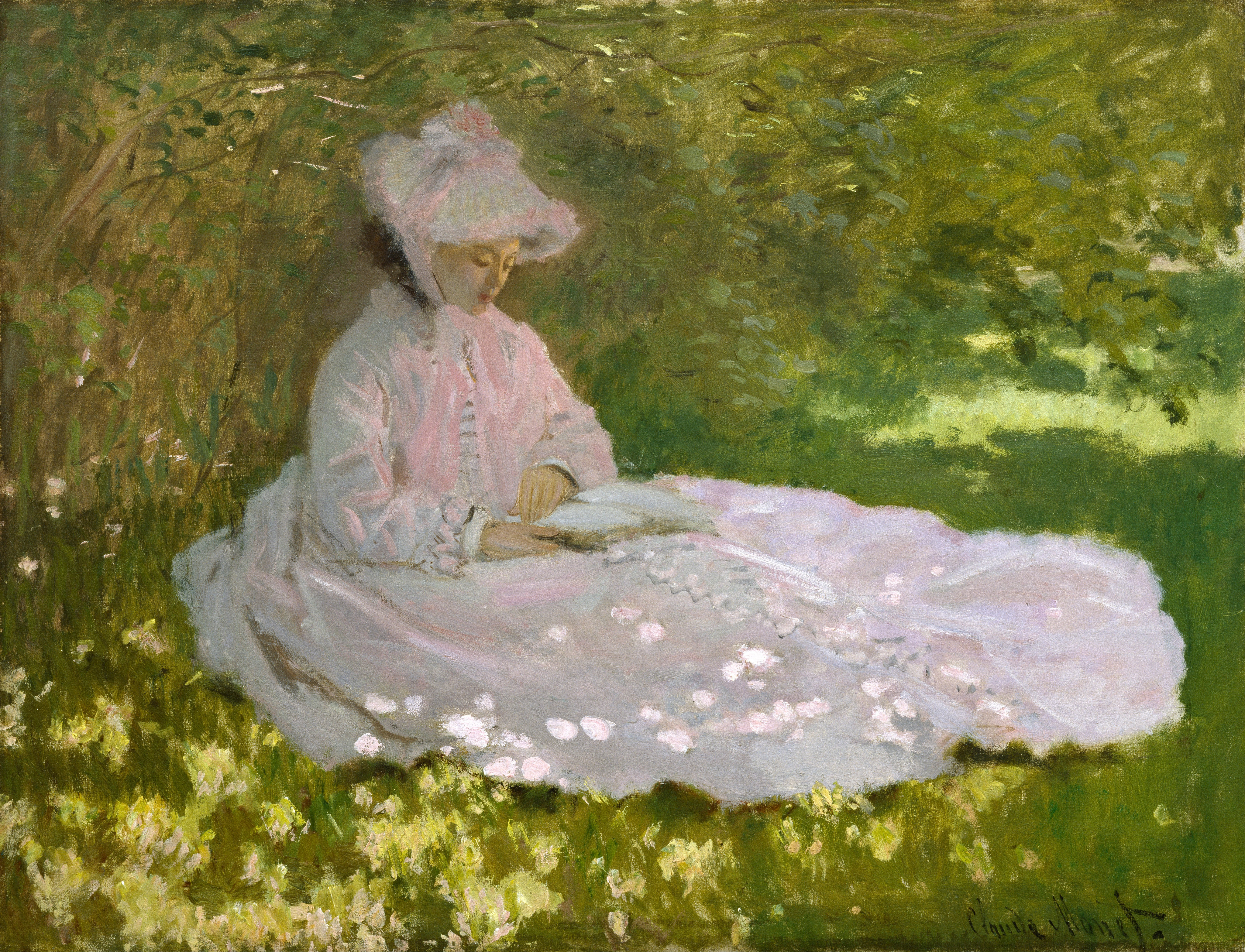Thursday
I report today on another new perspective I received from an Intro to Lit student. Abby Fisher has given me permission to write about her engagement with Wordsworth’s Intimations of Immortality.
When I taught the poem this year, I mentioned that Wordsworth suffered from depression and asked the class to watch for mood swings. Intimations begins on a down note (“The things which I have seen I now can see no more”), after which the poet talks himself into a high note (“And I again am strong”). This is followed by another downswing, however (“Where is it now, the glory and the dream?”), after which Wordsworth feels compelled to figure out what is going on.
His metaphysical explanation is that (1) before we are born, we are part of a universal soul; (2) “our birth is but a sleep and a forgetting,” which means that we lose sight of this soul (hence our depression); (3) the older we get, the more we lose sight of it (“At length the Man perceives it die away”); but (4) we never entirely lose touch but have intimations (“To me the meanest flower that blows can give / Thoughts that do often lie too deep for tears”). Beauty prevails in the end.
Abby had noticed Wordsworth’s depression even before I mentioned it since she herself wrestles with the illness. She understood the experience of trying to talk oneself into a good mood and failing (“Oh evil day! if I were sullen…this sweet May-morning”).
It was striking to see Abby’s dialogue with Wordsworth. Since the poet doesn’t have our understanding of mental illness, we were impressed by how he used his metaphysical framework (separation from the universal soul) to describe and understand what was transpiring inside him.
Abby then said something which stopped me in my tracks. I mentioned how Wordsworth, in recounting the origins of his explanation, described how, as a child, he sometimes lost all sense of connection with the earth and would enter a mystical state. Abby said that something similar used to happen to her. She also said it has a psychological name: depersonalization-derealization disorder (DDD).
I juxtapose Wordsworth’s account with a definition that Abby provided so you can compare them. Wordsworth says that his difficulty of imagining death when he was a child
came as from a sense of the indomitableness of the Spirit within me. I used to brood over the stories of Enoch and Elijah, and almost to persuade myself that, whatever might become of others, I should be translated, in something of the same way, to heaven. With a feeling congenial to this, I was often unable to think of external things as having external existence, and I communed with all that I saw as something not apart from, but inherent in, my own immaterial nature. Many times while going to school have I grasped at a wall or tree to recall myself from this abyss of idealism to the reality. At that time I was afraid of such processes.
Here’s the Mayo Clinic’s description of DDD:
Depersonalization-derealization disorder occurs when you persistently or repeatedly have the feeling that you’re observing yourself from outside your body or you have a sense that things around you aren’t real, or both. Feelings of depersonalization and derealization can be very disturbing and may feel like you’re living in a dream.
Many people have a passing experience of depersonalization or derealization at some point. But when these feelings keep occurring or never completely go away and interfere with your ability to function, it’s considered depersonalization-derealization disorder. This disorder is more common in people who’ve had traumatic experiences.
Does psychology trump Wordsworth’s mystical explanation? No more, I would say, than the “God gene” trumps religion. We seek for images and narratives that help us make sense of the world, and Wordsworth, in his attempt to do so, wrote one of literature’s greatest poems. Perhaps we can say that the universal soul shone through his depression, an incandescent consolation for his suffering.


